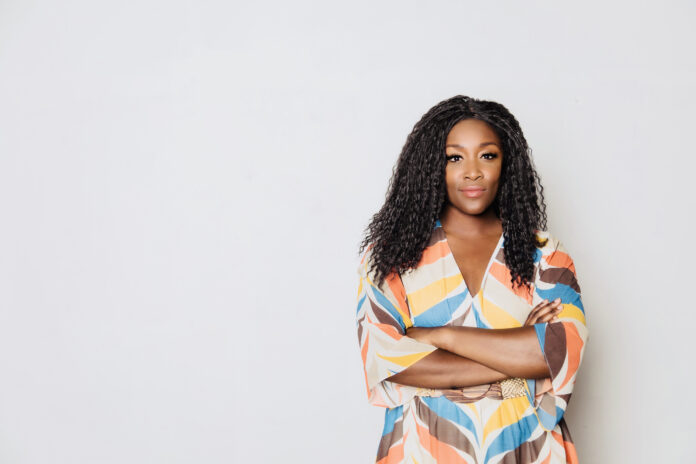( ENSPIRE Community Spotlight ) Hale Uses Her Music, Podcast, and Photo & Video Series To Bring Uplift To the Black Community
ENSPIRE Contributor: Anastasia Hanna
Malynda Hale is a multi-faceted talent as an actress, singer/songwriter, director, podcast host, activist, and mom based in Los Angeles. She has used her voice and social media presence to effect change with social justice, female empowerment, LGBTQ+ rights, veganism, and the Black Lives Matter movement.
She currently hosts her own podcast called #WeNeedToTalk, a table talk discussion series that focuses on important topics in politics, entertainment, and cultural trends. This year, Malynda launched a photo/video series entitled “Black Voices Heard” to chronicle the experiences of Black Americans. She also serves as a worship leader at Harmony Toluca Lake, where she co-hosts a bi-monthly discussion called Courageous Conversations. This discussion group focuses on social justice from a Christian perspective.
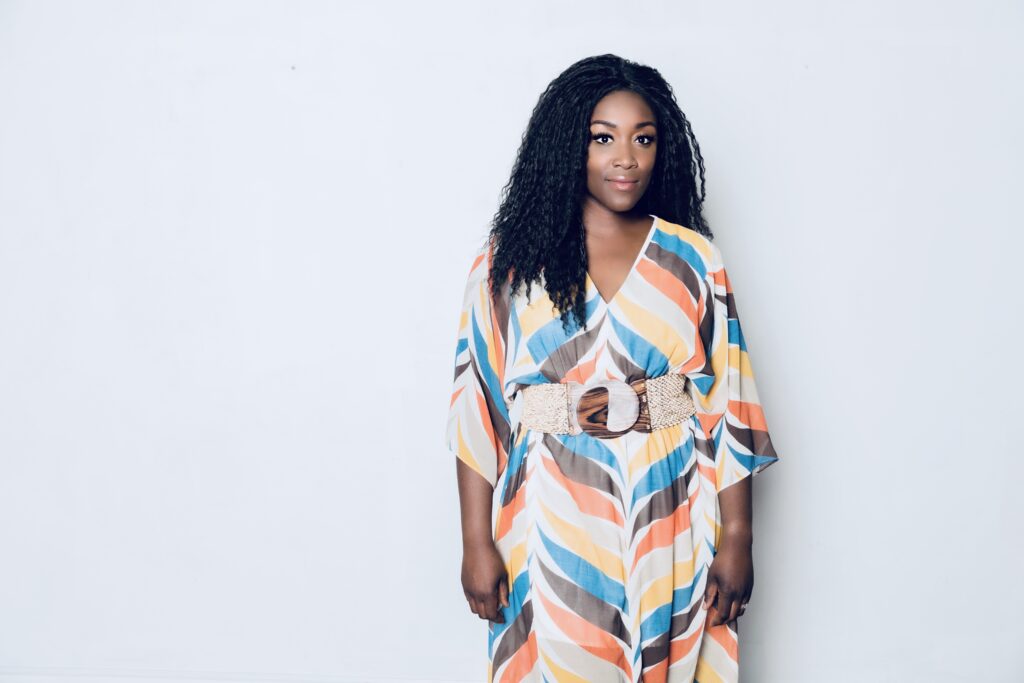
Malynda was born and raised in sunny Santa Barbara, California, where she began singing at just five years old. At the age of seven she learned to play the piano, and by nine years old she was writing her own music. Malynda’s love for music and desire to make a difference in the world have led her to be recognized many times for her work.
She won “Best Female Vocalist” at the Hollywood Music in Media Awards, Best Pop Music Video at the Indie Music Channel Awards, and she has been a headliner for the NAMM show on the main stage and for the Sennheiser stage. She has opened for artists such as Tyrone Wells, Ernie Halter, Levi Kreis, OTOWN, and Smokey Robinson. She has been married for nine years and is a new mom to a baby girl.
ENSPIRE Magazine got in touch with Malynda to discuss her #WeNeedToTalk podcast, her Black Voices Heard series, her love for music, and much, much more.
Can you tell me a bit about your photo/video series, Black Voices Heard? What was the inspiration behind this series? What kind of stories are told?
In the wake of the Breonna Taylor and George Floyd murders, a friend of mine by the name of Mo Cee reached out to me, wondering what he could do to help. He’s a photographer and wanted to figure out a way to give a platform to Black voices. So, I took some time to really think about it and I created a project that he could collaborate with me on.
I realized that so many people have the wrong assumptions about Black Americans, mainly because they have limited exposure to who we are as a community. Many other people that we rarely get to tell our own stories has controlled the narratives and perceptions of us. And it doesn’t help that people seem to have preconceived notions about us that they aren’t willing to change.
So, the purpose of this project is to present Black people in a real and authentic way. It’s my hope that these stories and profiles will help humanize us and change the societal view of Blackness as a whole.
When and why did you create the #WeNeedTalk podcast? What kind of topics are discussed? Are there any restricted/taboo subjects you stay away from? How do you decide who gets to appear on your podcast?
I originally started #WeNeedToTalk as a live panel series that took place at my church. I wanted to bring social justice conversations to my church community because, as Christians, those are the things we need to be the most involved in. I’ve been very blessed to be a part of a progressive Christian community, so they welcomed the series with open arms. When those panels received a positive response, that really sparked the idea to want to start the podcast.
I started out by discussing current topics within social justice and politics, but it has since evolved into a platform for one-on-one conversation surrounding important topics. The people I bring on the show not only have compelling stories to tell but they also share their experiences with mental health, politics, social justice, racism, sexism, women’s empowerment, etc. There really isn’t any topic I shy away from because I think the more we talk about things, the more people will be inspired and also encouraged to make a change and take action if need be.
How are Black Voices Heard and #WeNeedToTalk helping to break down barriers for Black Americans? In what ways do you think they help to encourage change?
I’m a firm believer that everything starts with a conversation. And I think one of the biggest issues we have is not listening to other peoples’ stories with an open mind and open heart. While there will always be fundamental things that people disagree on, I think when you get down to the core of our humanity a lot of us want, feel, and need the same things. So, in terms of how my podcast and this project have broken down barriers for Black Americans, I think I’ve given a solid platform as well as a safe space for them to share their stories, their work, and their experiences, thereby humanizing us.
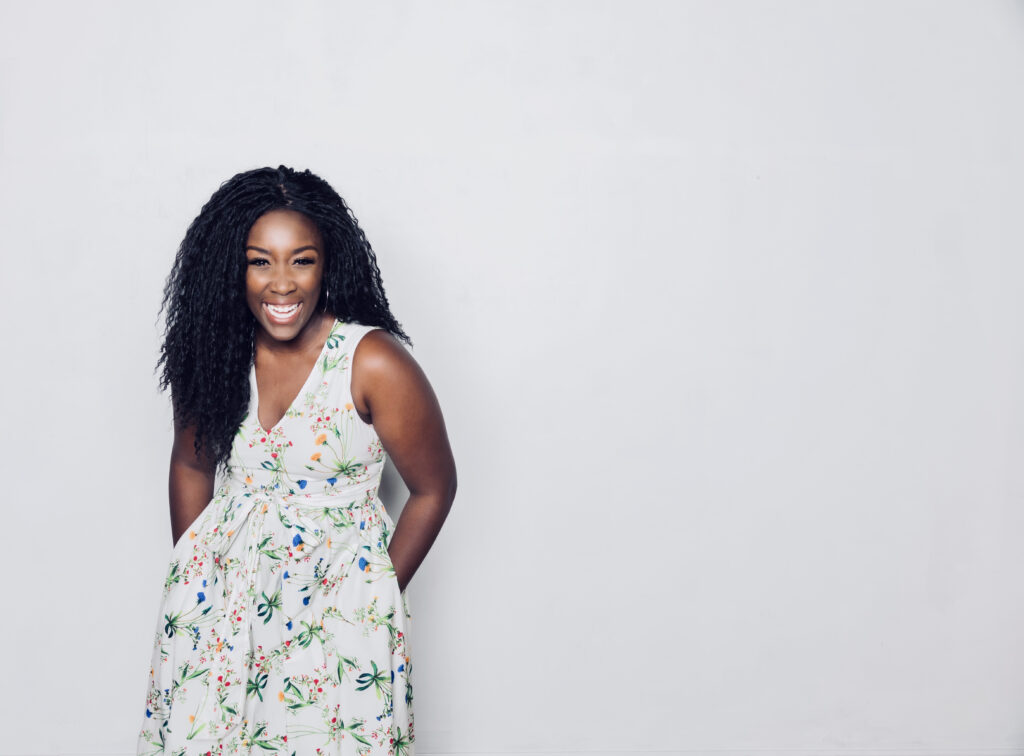
When did you first fall in love with music? Why are you passionate about it? What kind of music do you create? How does it contribute to positivity? How are you using music as an activist? What are some milestones you’ve made with your music?
Music has always been my first love. I’ll never forget hearing Whitney Houston sing the national anthem at the Super Bowl. I was 5 years old, and I knew that’s what I wanted to do for the rest of my life. Music has always been a way for me to connect with others, but also a way for me to be vulnerable and show my heart to the world. When I started creating music, I was really focused on trying to create what I thought was commercial, or what people would like, but in recent years I phased out of that mindset.
Now I create music that tells a story, uplifts, and has messages regarding things I’m passionate about. Whether it’s about my experience as a Black woman, marriage equality, suicide and mental health, or my faith, my music has taken a deeper route and that is extremely important to me as an artist. Music is truly one of the best ways to get people to listen and understand different perspectives, so that’s how I’ve managed to use music as a form of activism. I’ve reached a lot of milestones in my music career, but I think simply having people tell me they connected with my lyrics or thanking me because of something I’ve written is the biggest accomplishment for me.
What drove you to become an LGBTQ+ rights activist? In what ways are you advocating for LGBTQ+ rights? What kind of impact are you hoping to make for the LGBTQ+ community?
Being someone that follows the teachings of Jesus as my faith, I’ve always found it was important to lead by example when it comes to loving your neighbor. But additionally, I don’t want people who identify in the LGBTQ+ community to feel like who they are is wrong. If God doesn’t make mistakes, how can you tell someone that who they are is a mistake? It doesn’t make any sense. And it’s not what Jesus stood for.
I’ve been more open about my faith recently because I want people to know that they are loved no matter what. So, my advocacy for the LGBTQ+ community stemmed from knowing how so many of them have felt ostracized and ex-communicated from their church communities because of their sexual identity. I hope that I can show them that whether they believe in God or not, they are loved for who they are.
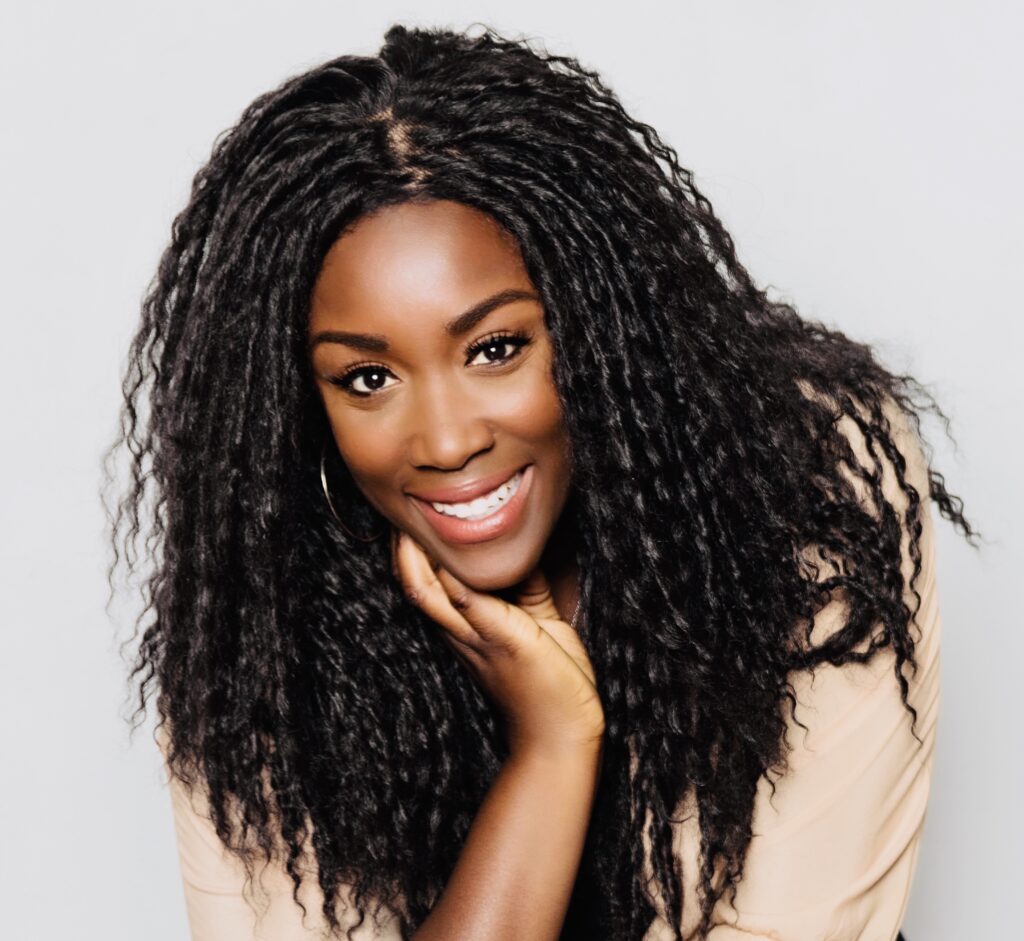
What made you become a Black Lives Matter activist? How are you advocating for BLM? Have you seen any positive changes as a result of your contributions?
I actually don’t consider myself a Black Lives Matter activist, but I advocate for the movement simply because of my lived experience. I’m a Black woman living in America and because of that fact, I still have to convince people that my life matters. I think, if anything, I’ve been trying to deter people away from the organization and focus on the phrase. Not that I have an issue with the organization but because people have misconceptions about it as a whole, and I don’t really want to open up the door to have a conversation about looting and rioting (which are NOT condoned by the BLM organization btw).
What I really want to focus on is people simply being able to say that Black Lives Matter. Because the phrase itself is so simple, and quite honestly, there shouldn’t be any form of a rebuttal to that statement. It doesn’t say Black lives matter more, or only Black lives matter. It simply says they matter. So, my goal is to get people to just emphatically make that statement so they can let an entire race of people know that they support them and believe in their fight for equality.
What exactly does social activism entail? Have you met new people as a result? How many protests/events do you attend? How are you getting your messages across to your target audience? Any tips for those seeking to become activists themselves or contribute to social justice?
I think in this day and age social activism means using whatever platform you have to educate and start conversations, showing publicly that you advocate for marginalized groups that are fighting for change, putting money into communities that need it, and giving what you have resource wise to a cause you care about. I’ve been extremely blessed to meet so many influencers and activists that are also using their platforms for change and to educate. Like I mentioned before, I truly believe in the power of conversation, and I’m also not afraid to say what I’m feeling, which is why I think people connect with me.
I think I have the ability to approach things with levity and meet people where they are, but I also have no problem introducing people to themselves so they can do work. I think everyone has different ways in which they approach activism and how they show up for causes. I personally am not a fan of marches and protests. I’ve been to a few events and rallies, and I fully support them, but that’s never been my main medium for change. I’ve always been a connector, someone that supports financially or gives others a platform to share the work they are doing. I think, if people want to be involved in activism, you have to start first by listening and educating yourself. You have to be in the know in order to participate and help make progress. Education is a powerful tool.
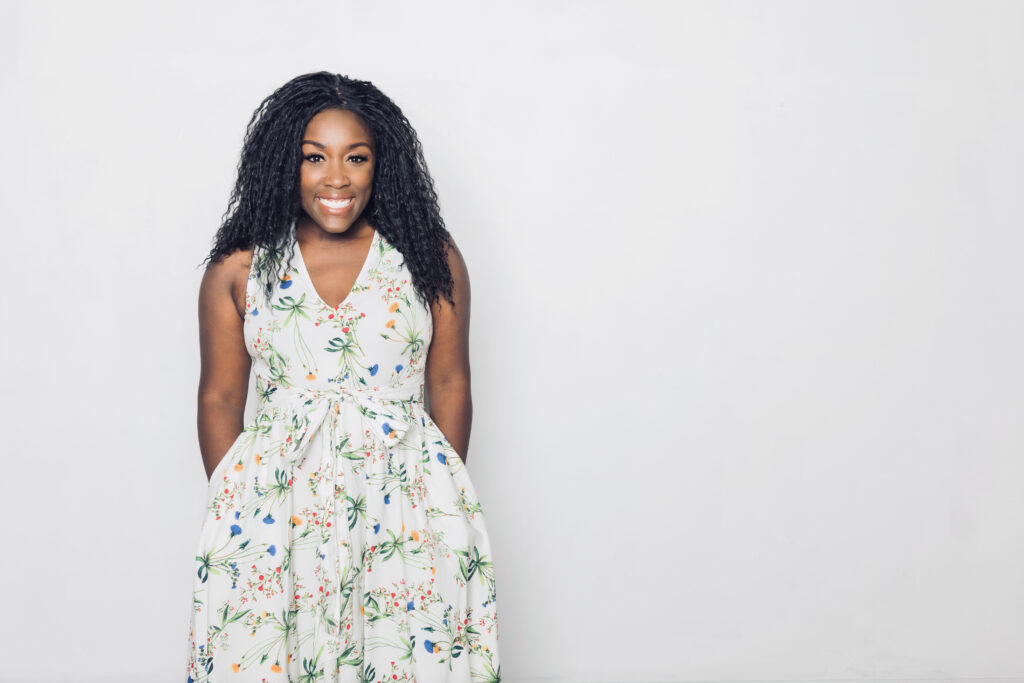
What are your convictions about female empowerment? And how are you empowering other women? Name three things you believe all women could draw strength from.
I think female empowerment is essential, but I think it, along with feminism, struggles with intersectionality. I think we need to uplift women regardless of color and racial identity and really encourage each other to succeed. I think, for myself, I’m always trying to uplift, inspire, encourage, and just offer guidance to any women in my life that may need it. No questions asked.
I think the connection women have to each other is a powerful one and needs to be affirmed daily. I know that everyone is different, so I can only say what works for me. But I draw strength from music, my faith, and my family. Those three things have kept me strong over the years, and I couldn’t imagine my life without any of them.
You co-host the bi-monthly discussion group Courageous Conversations at your church in Los Angeles. I understand that this group focuses on social justice from a Christian perspective. Can you tell me more about that? Also, can you give me a general explanation of what Progressive Christianity is?
This group has been really refreshing for me to co-lead because the people that show up really want to do the work to understand and do better when it comes to social justice. Unfortunately, for a lot of Christians, social justice is a dirty word and I’ve never understood why that is. The core beliefs within Jesus’s teachings were to love others and help them. He stood for the marginalized and gave a voice to the voiceless, so I don’t know how a faith that is supposed to be based on those values has been hijacked by people who can’t even say Black Lives Matter.
This group really talks about social justice issues in a safe space and allows people to ask questions. We often use scripture to show and prove why we as Christians should be leading the charge when it comes to social justice. I think the best way I can describe Progressive Christianity is a faith that acknowledges the Bible as an origin and a guide but has a desire to get out of the antiquated beliefs and views that are portrayed in it. It’s also a desire to truly live like Jesus lived.
Congratulations on being a new mom to a baby girl! How does it feel to be a new mom, especially during the pandemic? Does being a mother during the pandemic give you any concerns? Does being a mother during the pandemic make you feel as if you have to take extra precautions or otherwise think more carefully about the future, or does this [the pandemic] all feel normal by now?
Thank you! She’s truly the light of my life. I actually feel blessed to have had her during the pandemic because in normal situations my husband and I may not have been able to spend as much time with her. So, we both feel very fortunate for the time we’ve spent together as a family.
I never really had any concerns about motherhood during the pandemic, but I was sad that she wasn’t able to meet as much family as I would have liked early on. But now that she is over a year old, we are entering the years where she can really start building relationships with people. So, as more of us are vaccinated, we will be cautious and slowly start bringing more people around her.
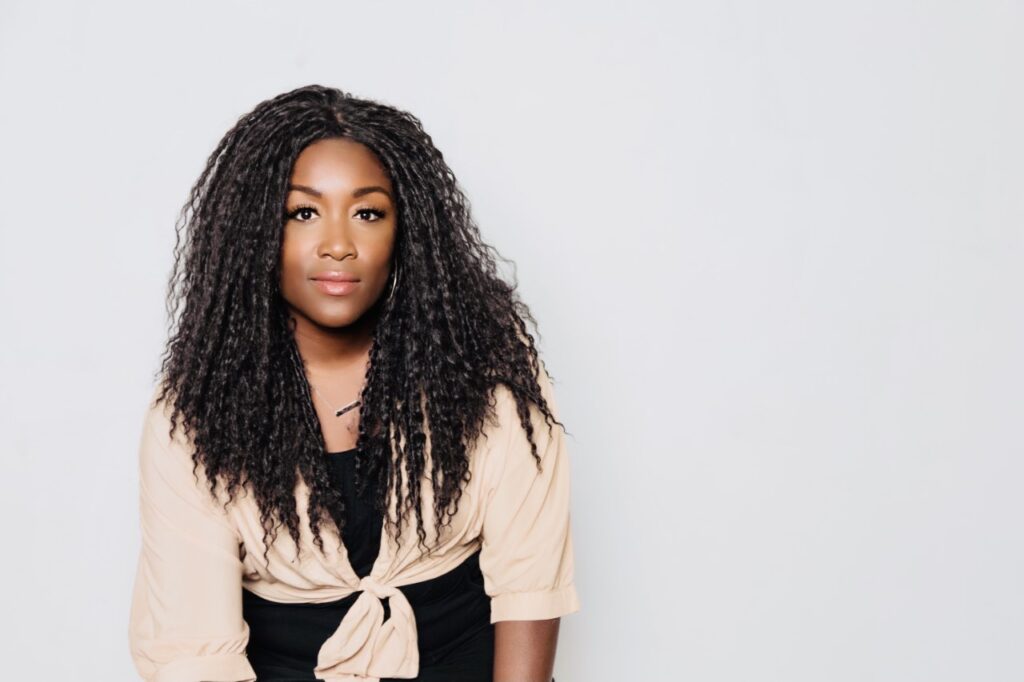
I understand that you’re in a biracial relationship. Is it any different from being in a same race relationship? If so, how? What has perception been like from other people? What is your perspective on this? What are your views on marriage equality?
It is different, but the foundation of our relationship has always been based on love. However, my husband will never deny or ignore what I, as a Black woman, experience on a daily basis and also what his daughter will most likely experience as well. Even with her being mixed, she is still a Black woman. I think the difference from being in same race relationships is just being able to have a mutual understanding of certain aspects of your life. And while my husband sympathizes and does his best to understand, it will never be his lived experience. In general, our relationship has been accepted and I’ve been surrounded by others that are also in interracial relationships, but we’ve definitely run into some people who have opposed it.
Even being a public figure and influencer on social media, I get accused of not being pro Black because of who I’ve chosen to be my life partner. Those types of statements are mind-boggling to me. You should never reduce the identity of someone to who they are with and then erase everything else they do for their community because of who they love. I think it’s ridiculous. And in terms of marriage equality, I’m all for it. I think everyone has a right to be married to who they love, and everyone else should just mind their own business.
Can you tell me about your vegan lifestyle? What are your views on veganism? Do you think it’s healthier than other diets or practices? What are some tips you have for someone who wants to become a vegan?
I always love to say I was vegan before it was cool! I’ve been vegan for 16 years now and I definitely considered adding more outspoken views about my veganism, but I think there are so many other influencers that do it better than I ever could, so I’m glad they are using their platforms for that.
I think veganism, if you do it right, is an extremely healthy and humane lifestyle. And it also helps with climate change, which, in addition to animal rights, is a huge reason why I’ve been a vegan. I want to feel like I’m doing my part in the world. If someone is looking to become vegan, I say, just start slow. Make gradual changes. Substitute one meal a day for a plant-based meal, then increase it every few days. Don’t make the switch abruptly because it will take time for your body to adjust. But one day at a time is my best advice.
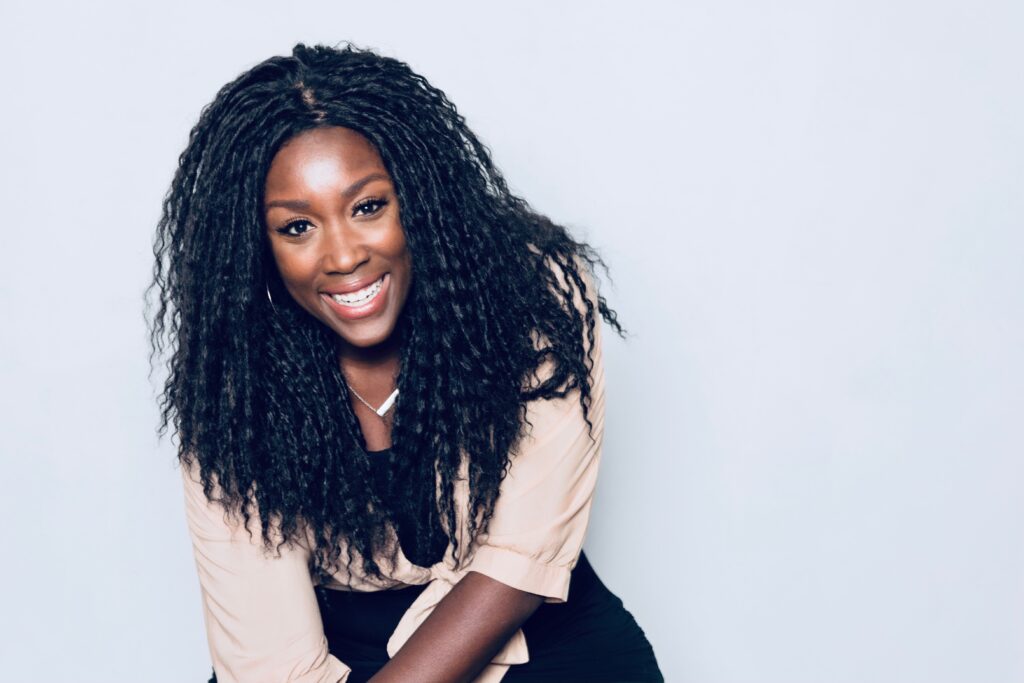
The #WeNeedToTalk Podcast covers current events and hot topics in politics, entertainment, and the latest cultural trends through a mix of roundtables and one-on-one interviews. If you want to dive into deeper conversations that go beyond social media, this podcast is for you. You can listen to Hale’s #WeNeedToTalk podcast on Apple Music & Spotify.
Black Voices Heard is a photo and video series set to amplify Black voices across different fields and life experiences. It will include personal stories, how they personally want to combat racism, breaking down stereotypes of Black people, and personal messages that they want to share with the world. The series launched on January 4th, 2021, and will be ongoing indefinitely. Watch the Black Voices Heard photo and video series on Facebook & YouTube.
For additional information and updates, follow Malynda Hale on Twitter, Instagram, and YouTube. Also, visit her official website!

